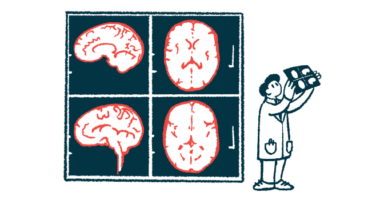Phase 1 trial of SAT-3247 finishes enrolling healthy volunteers
Satellos testing 4 doses of oral DMD therapy; data expected this spring

A Phase 1 clinical trial testing SAT-3247, an oral treatment candidate for Duchenne muscular dystrophy (DMD), is now done enrolling healthy volunteers, its developer Satellos Bioscience announced.
“The completion of healthy volunteer enrollment in our Phase 1 trial marks a significant milestone in our mission to develop transformative therapies for patients with degenerative diseases,” Frank Gleeson, cofounder and CEO of Satellos, said in a company press release.
Satellos said it “remains on track” to report data from this portion of the study in the first quarter of this year, or by the end of March. However, the company did not specify exactly when the results are expected to be announced.
“This progress sets the stage for us to present the first Phase 1 data at an upcoming major medical conference and advances our commitment to deliver meaningful solutions to the DMD community,” Gleeson said.
In all, 72 healthy volunteers were enrolled in the trial, the release stated.
Phase 1 study testing SAT-3247 in 72 healthy volunteers
A genetic disorder, DMD is caused by mutations in the gene that provides instruction to make dystrophin — a protein that normally functions like a shock absorber in muscle cells to prevent damage when muscles contract. In DMD, this protein is absent, so muscles accumulate much more wear and tear, and resulting damage, than usual. This ultimately leads to disease symptoms like progressive muscle weakness and wasting.
When muscles are injured, specialized muscle stem cells normally become activated to help repair the damage. But evidence suggests that the activity of these muscle-repairing stem cells is impaired in DMD, which contributes to the progressive muscle damage that drives the disease’s progression.
We believe SAT-3247 represents a novel, well-tolerated, and more favorable treatment option as an oral, once-daily therapy designed to restore muscle regeneration and repair in all DMD patients, whether used as a stand-alone drug or an add-on therapy.
SAT-3247 is an oral small molecule designed to boost the activity of these muscle stem cells, thus facilitating better muscle repair to ultimately slow the progression of DMD.
“We believe SAT-3247 represents a novel, well-tolerated, and more favorable treatment option as an oral, once-daily therapy designed to restore muscle regeneration and repair in all DMD patients, whether used as a stand-alone drug or an add-on therapy,” Gleeson said.
Satellos identified SAT-3247 as its lead therapeutic candidate in 2023, and the company launched a Phase 1 clinical trial last year. The trial is designed to test four doses of SAT-3247 in healthy volunteers. Investigational new therapies are usually first tested in healthy volunteers to evaluate their safety and pharmacological properties.
A Phase 1b portion of the trial in DMD patients is also underway and is expected to enroll as many as 10 adults with a confirmed diagnosis of Duchenne.
The U.S. Food and Drug Administration has granted SAT-3247 rare pediatric disease and orphan drug designations, which provide bonus incentives to companies that are working to develop treatments for rare disorders.








